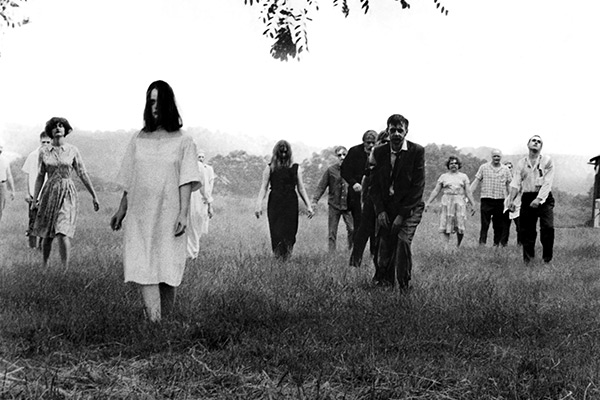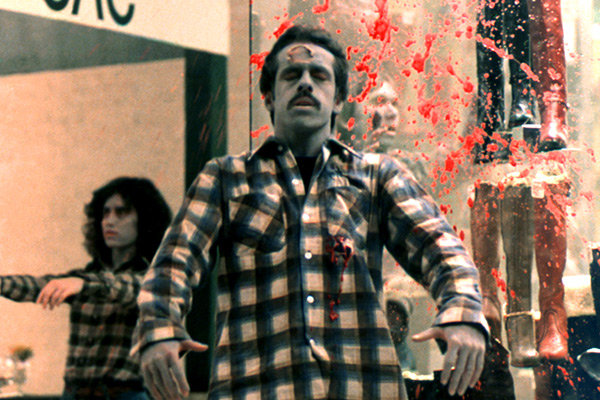George A. Romero
In three bites
POSTED ON OCTOBER 12, 2019
In the films of the Trilogy of the Dead, the American and very sweet director, George A. Romero, creates a biting political journey.
The egalitarian bite
The zombie is not a racist. He bites everyone equally. It’s a way for George A. Romero to remind us all that there is only one race: the human race. A white filmmaker from the heart of an America that still struggles with racism, Romero entrusts the lead role of Night of the Living Dead (1968) to an African-American actor, Duane Jones. His truck-driving character, improvised leader allows the other protagonists to panic as little as possible thanks to his smarts and his cool head, and to establish between them a notion of capital importance: solidarity.

The discount bite
The zombie is not a protestor. Putting aside physical emotions in favor of frantic materialism, and the desire to possess without really knowing why, wouldn’t man in the end be a supermarket zombie? The zombies of Dawn of the Dead (1978) err like disconnected puppets from reality, bumping against the objects of a consumer society that acts like a virus. Romero, a non-traditional filmmaker, fights against this cannibalistic thought as an anarchist who would show the need, through his films, to destroy the malls rather than human beings.

The slow bite
The zombie is not stressed out. Nor in a rush. Romero respects the tradition that the zombie moves with obsessive slowness. The humans of Day of the Dead (1985) have time to see them coming. They have time to feel their fear rise, but they also have time to ponder how not to get bitten and become insatiable and stupid beings. Romero constructs his film as a slow bite, a troubling discourse of discovering that being an American nation made up only of small communities that hate each other is worse than being devoured by the living dead.

Virginie Apiou

